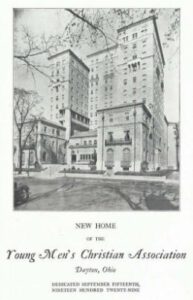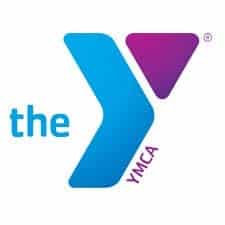Nonprofit Accounting Services During COVID-19
History
Since 1870 the mission of the YMCA of Greater Dayton (YMCA) has been to enrich the quality of family, spiritual, social, mental, and physical well-being for all. For the past 24 years, Flagel Huber Flagel (FHF) has worked side by side with them as they have navigated years of growth and challenges in the charge to deliver their mission. While the support the community needs has changed during the COVID-19 pandemic, the mission of the YMCA has not.
For many, when they think of the YMCA, they think of Zumba classes, swim lessons or recreational basketball. But the YMCA has a much more complex system of support with programming specific to the needs of each community they serve. That network of support includes 10 YMCA locations that serve more than 200,000 members, 52 child-care centers that see over 1,700 children each day, Camp Kern that hosts more than 30,000 guests each year, programs to combat social isolation for seniors, extensive diabetes prevention programming, and more than 7,000 biometric screenings across the region.


When the needs of the community shifted in March of 2020 with the onset of COVID-19, the YMCA responded immediately. They quickly partnered with Kettering Health Network and Premier Health to provide first responders with emergency, pandemic childcare. As their branch locations re-opened by the end of May, the YMCA went above and beyond to prioritize safety. They also added a Branch Capacity Dashboard on the website so that members can see how busy each location is at any time. Over the summer they have fed 19,000+ children, and they have continually provided outreach to their most vulnerable and isolated senior populations.
How We Entered the Picture
The YMCA COVID-19 response includes everything from emergency pandemic childcare, to an on-line branch capacity dashboard, to continuous outreach for isolated and vulnerable communities. For the last 24 years the YMCA has partnered with FHF for their nonprofit sector expertise.
Consistency in Times of Risk and Growth
For 24 years, including both periods of rapid growth and during the more recent challenges of navigating COVID-19, the YMCA has partnered with FHF as their accounting firm. Kevin Hagstrom, FHF Partner, says, “From top to bottom everyone in the YMCA is incredibly focused on their mission and on having the biggest impact possible. This has been a challenging time, but I love that they are never content to stand still. They are always looking forward for ways they can fill a need in our community.”
YMCA Executive Director, Dale Brunner, is adept at balancing both short-term and long-term needs of the community. Today, the COVID-19 response is at the forefront, but Brunner never strays from the long-term focus of expanding the YMCA community impact.
The YMCA growth story started in 2000, when they opened 6 locations in as many years. By 2010, with membership hovering at 100,000 people, the Board of Directors challenged the YMCA leadership to double their impact by doubling membership. Brunner, recalls, “In order to provide a broader service to our communities, we needed to make sure everyone could afford to attend. Even though it was risky, we lowered our membership prices and expanded our scholarships.”



Throughout this period of growth, the YMCA has relied on the FHF accounting team to deliver excellence in compliance and auditing. FHF has also advised on topics including bond issue funding, and accounting rules specific to nonprofits. Hagstrom says, “We do work for almost 100 nonprofit clients which makes us really good at this niche area.”
As challenging as 2020 has been, when Brunner looks forward, he and his team are once again focused on growth and how they can best support the communities they serve.

Let’s talk. We can discuss your goals and challenges then create a plan to help you.
